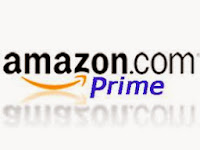Modeling the success of Netflix, entrepreneurs have launched subscription services for ebooks. Scribd, Oyster, and Entitle are competing for customers willing to pay a monthly fee in exchange for access to a library of ebooks.
I started to write “an unlimited supply” of ebooks, but that’s not true. None of the services has anywhere near full access to all the ebooks published, with catalogs of only around 100,000 or less, and several major legacy publishers are not participating at all.
Both Scribd and Oyster let their subscribers read all they want for $8.99 and $9.95, respectively. But Entitle has a different model that lets you buy—and actually own—only two books a month for $14.99.
I have two questions: Will enough readers—and publishers—engage in these services to make them successful? And, how do writers get paid? Nothing I’ve read so far about the ebook subscription service mentions how writers get their share. As for the first question, I’m skeptical. The services don’t include new releases by popular authors, and not enough selection in general. Also, many books on the open market are free or $.99—at least for limited periods of time—so even $10 a month is too much for bargain hunters who, say, read a book a week.
One article discusses how publishers get paid, and it’s after the fact. Payment also depends on how much of the book a reader consumes. With Scribd, if the reader consumes more than 10 percent but less than 50 percent, it counts for a tenth of a sale. Above 50 percent, it is a full sale. For Osyter, anything more than ten percent is considered read/consumed and earns a fee from the publisher.
So if the publisher only gets a tenth of sale, then the author must only get a tenth of the royalty. I’m guessing here, because no one talks about this. Some of the major publishers and ebook distributors have joined, but Penguin Random House and Simon & Schuster are staying out.
And then there’s Amazon Prime, which also includes a subscription ebook service, letting readers borrow only one book a month (from a library of 350,000). But industry insiders say that Amazon is gearing up to launch a full-fledged competitor. If that happens, I believe Amazon will be open and fair about how authors will be compensated. It’s just how they interact with writers. They'll also have a much bigger library of ebooks.
The other big issue is the data. The reason these companies know when a consumer has read enough of the book to earn a fee is because they’re tracking that data. Which could be a wealth of information for authors. Some findings so far:
- The longer the mystery, the more likely readers will jump to the end to find out who did it.
- Readers are 25 percent more likely to finish books that are broken up into shorter chapters.
I imagine this kind of information will just keep coming. As authors, it could be tempting to start modeling our stories on the data. But what does that mean for creativity? And how dependable is the data, considering that ebook-subscription users don't represent a real cross-section of readers (print, digital, and audio.)
Readers: Do you belong to one of these services, or does it interest you?
Writers: Given a choice, would you enroll your books in these services?



I would look at Amazon's subscription service if they develop one. I've come to trust the Zon and its desire to provide authors with full information and fair royalties.
ReplyDeleteAs for the others? Too many questions. Too many secrets. Too many walls. They don't feel right.
I don't know how accurate it is, but I've heard things about Scribd not being very vigilant about permissions.
ReplyDeleteI'm not inclined to try any of these out at the moment, mostly because I don't see how it will help my own bottom line. I used to have my ebooks available on multiple platforms. Then after a year, I did the math and realized that my TOTAL sales from all non-Kindle platforms was less than 10% of my Kindle sales. That's when I went exclusive with Amazon. The borrowing alone made up the 10%.
ReplyDeleteI can't imagine using their data to tailor my books to how people read. I mean, yes, I want to write books that other people will read, but at some point, I don't want to be the machine that churns out another novel.
Speaking as a reader only here. First, please don't let statistics rule your writing. There is far too much bandwagon jumping going on these days already. Second, I would be unlikely to join a subscription service. I already have Amazon Prime and a membership in two libraries. AP has a hefty fee, but I get a lot of benefits. The library memberships are free (citizen and senior citizen). I resent the fact that the mainstream publishers limit ebook availability to libraries, but that's a rant for another day. Unless the subscription services have a much wider selection of books than the libraries, I don't see them being of much interest to me. One woman's opinion only, of course.
ReplyDeleteI haven't tried any of these yet, though Kobo seems to be pushing one of them, as I vaguely recall. As always, there are too many people at the trough filled with the fluid gold from writers, who seem to be at the back of the crowd, and the end of the line.
ReplyDelete